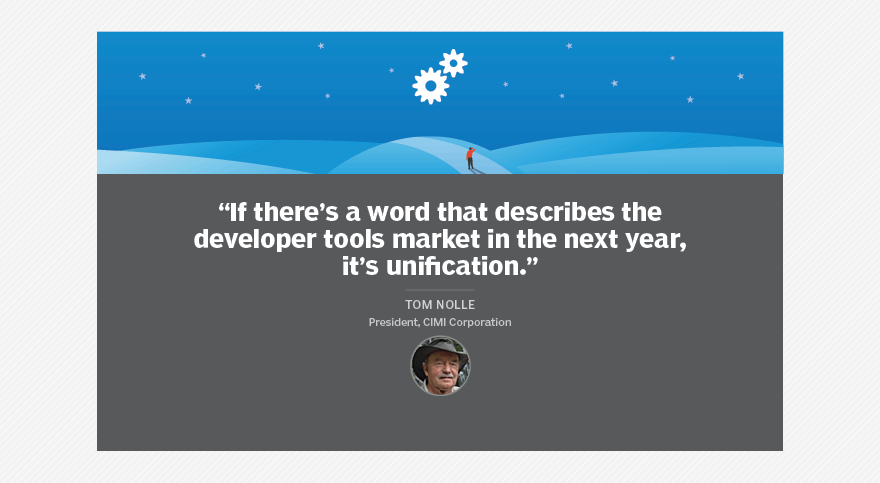What's in store for software development trends in 2020?
Over the years, enterprises relied on narrowly mission-focused developer tools that are either specifically for programming, process and change management, or testing, or support a specialized development and deployment scenario. The emergence of the cloud as a development target and the need for multi-cloud and hybrid cloud configurations multiplied the number of tools in use across developer workstations.
But that's starting to change as we look at software development trends in 2020. If there's a word that describes the developer tools market in the next year, it's unification.
A refined, single, target application model hasn't emerged. There's still the data center and cloud, desktop and embedded apps. We will start to see that disorder reduce. Rather than look for developer tools to support a narrow goal, we will see them as part of an overall ecosystem that supports a single application model for data center and cloud.
Enterprises realize that they will be hybrid cloud users, and that every major application will likely have components running both locally and in a multi-tenant public cloud. It's not efficient to have different deployment models that drive different development models, plus tools to manage these models, for every application.
For that reason, application teams increasingly focus on a containerized model -- typically based on Kubernetes management -- for development and deployment. That shift creates, for the first time, a unified view of how applications run both in the data center and the cloud. That single view is the target of vendor ecosystems, such as IBM Kabanero, VMware Tanzu and Google Anthos.
A single application vision creates a single target for development tools. Development teams combine CI/CD, programming languages and practices, microservices and cloud-native architectures to support that one vision. In 2020, that effort will favor the development suite suppliers over vendors who offer specialized dev tools. Thus, 2020 will be the year of the development ecosystem, just as 2019 was the year of the Kubernetes ecosystem.
Giants in the software engineering product sector will acquire specialized developer tool vendors in the next year as they look to bolster their offerings to meet this changing demand. Additionally, we will see more software suites that unify both the Kubernetes-centric deployment platforms and the development tools that teams can use to create container-centric, cloud-ready applications. Those vendors that stay independent in 2020 will fit niche needs, and the ones positioned for a future that's totally container-centric might be able to break out in future years.
Tom Nolle is the president of CIMI Corporation, a technology consultancy.







